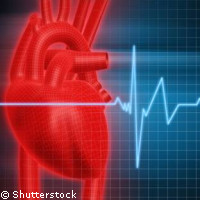Human and financial burden of heart disease revealed
Cardiovascular disease (CVD) is causing huge human and financial losses across the European Union. According to figures published by the European Society of Cardiology (ESC) and the European Heart Network (EHN) and highlighted in a recent meeting in the European Parliament, healthcare and other costs ensued by CVD amount to over €192 billion a year. Worryingly, every year two million people in the EU die of the disease, a death toll that could be reduced considerably by establishing proper prevention policies, the ESC experts say. The data also show that coronary heart disease (CHD) and stroke affect both sexes. However, more women than men die: In France, for instance, CVD accounts for 26% of all male deaths and 31% of female deaths. In Bulgaria, on the other hand, 62% of deaths in men and 71% in women are due to CVD. These figures corroborate the other major finding that trends differ widely across the EU. CVD mortality is falling in most northern, southern and western European countries. By contrast, mortality is rising in Central and Eastern Europe. Between 1995 and 2005, death rates from CHD fell by 53% in men in Ireland, while in Romania (1994 to 2004) death rates in men fell by only 18%. Meanwhile, in Ukraine death rates increased by 13% for men and 12% for women. 'These latest figures show that cardiovascular disease is a critical health problem for Europe and must be taken seriously. High risk countries should take urgent steps to implement measures to reduce the burden of CVD. The elevated mortality rates in some European countries are also unacceptable from both a human and economical point of view,' Georgs Andrejevs, Member of the European Parliament (MEP) from Latvia. He is also the co-chair of the MEP Heart Group, which was created in October 2007 with the aim of gathering and exchanging information on cardiovascular health and stimulating initiatives on CVD prevention in cooperation with the ESC and the EHN. 'To those who think prevention is expensive, I say, try disease,' comments Dr William Wijns, chair of the ESC's Committee for European Relations. 'As a cardiologist, I am confronted every day with the terrible consequences of heart disease. People who normally wouldn't consider themselves as risk takers, nevertheless take daily risks by smoking or eating unhealthily. As specialists we get to see people as patients, when the damage is done.' According to Dr Wijns, the dedication of policy-makers to cardiovascular health is extremely important as they can help Europe take further action, in particular in the field of prevention, by educating populations and by providing supportive environments helping people to choose a healthy lifestyle. A wide range of EU-funded research projects and Networks of Excellence are looking into CVD treatment and prevention. The European Vascular Genomics Network (EVGN), for instance, is coordinating multidisciplinary research into atherosclerosis. Other projects such as HeartCycle are developing telemonitoring tools for heart patients, so as too reduce healthcare costs and increase patients' involvement in their disease and its treatment.



